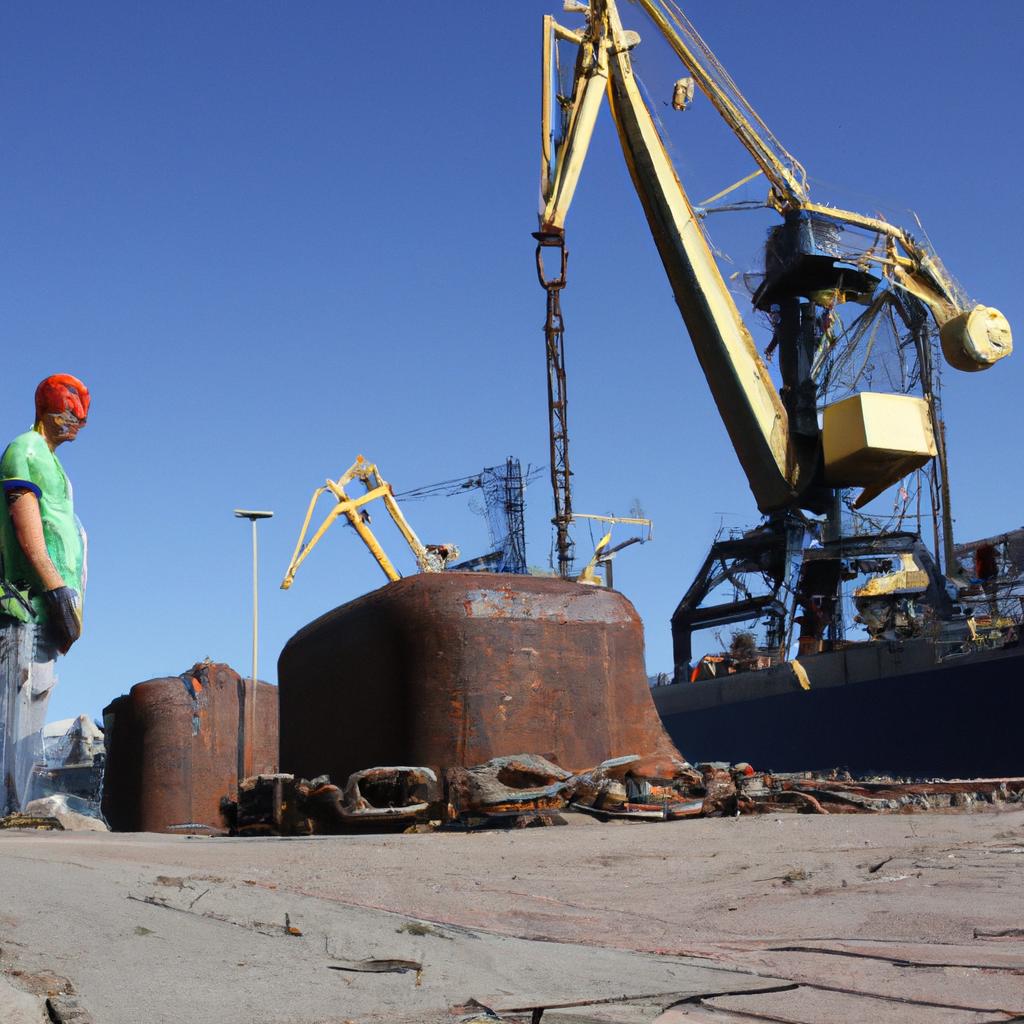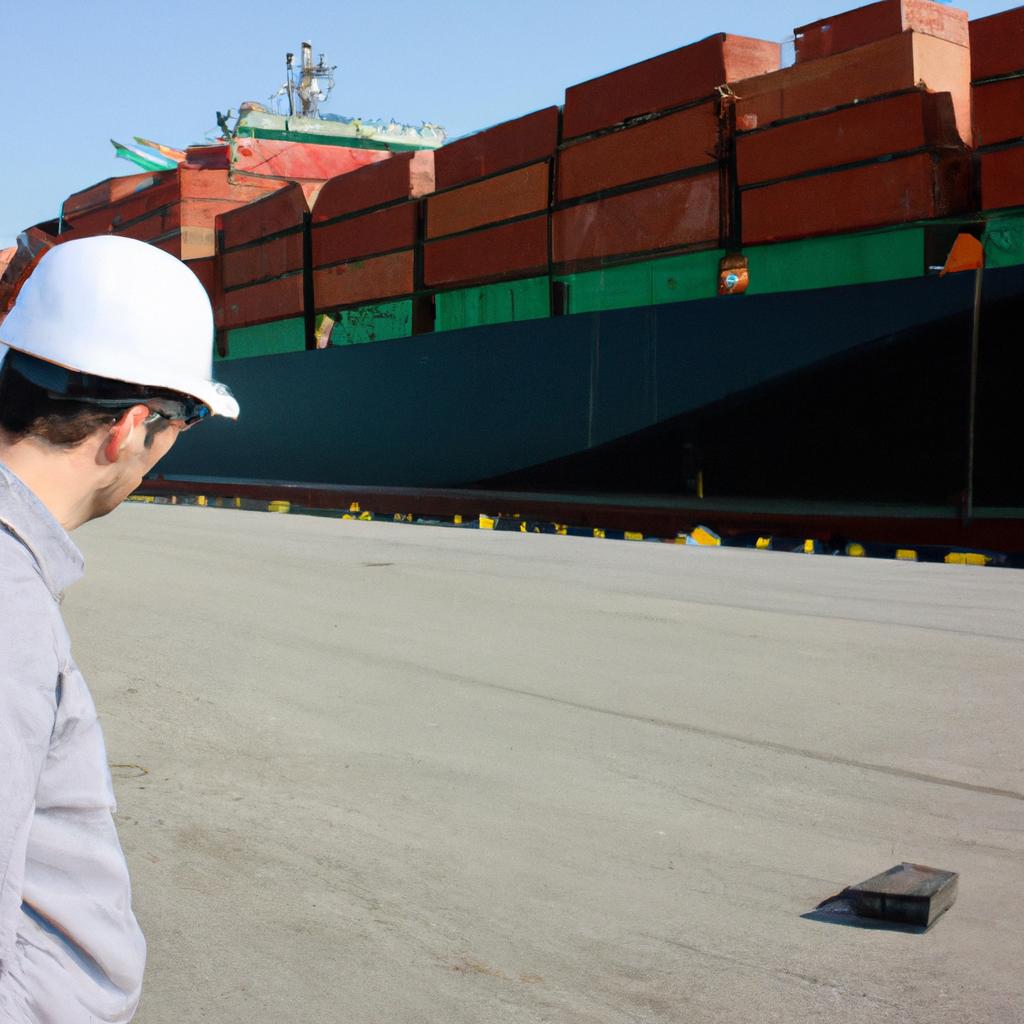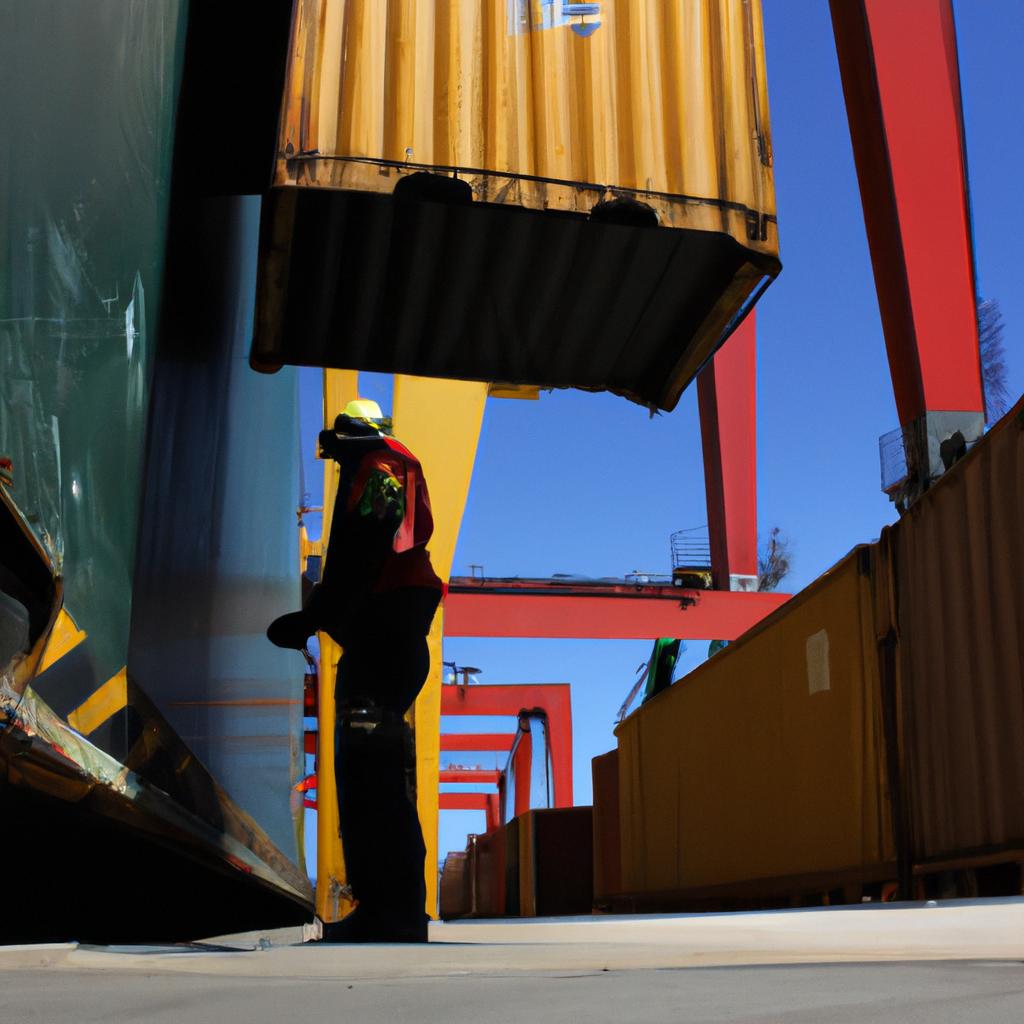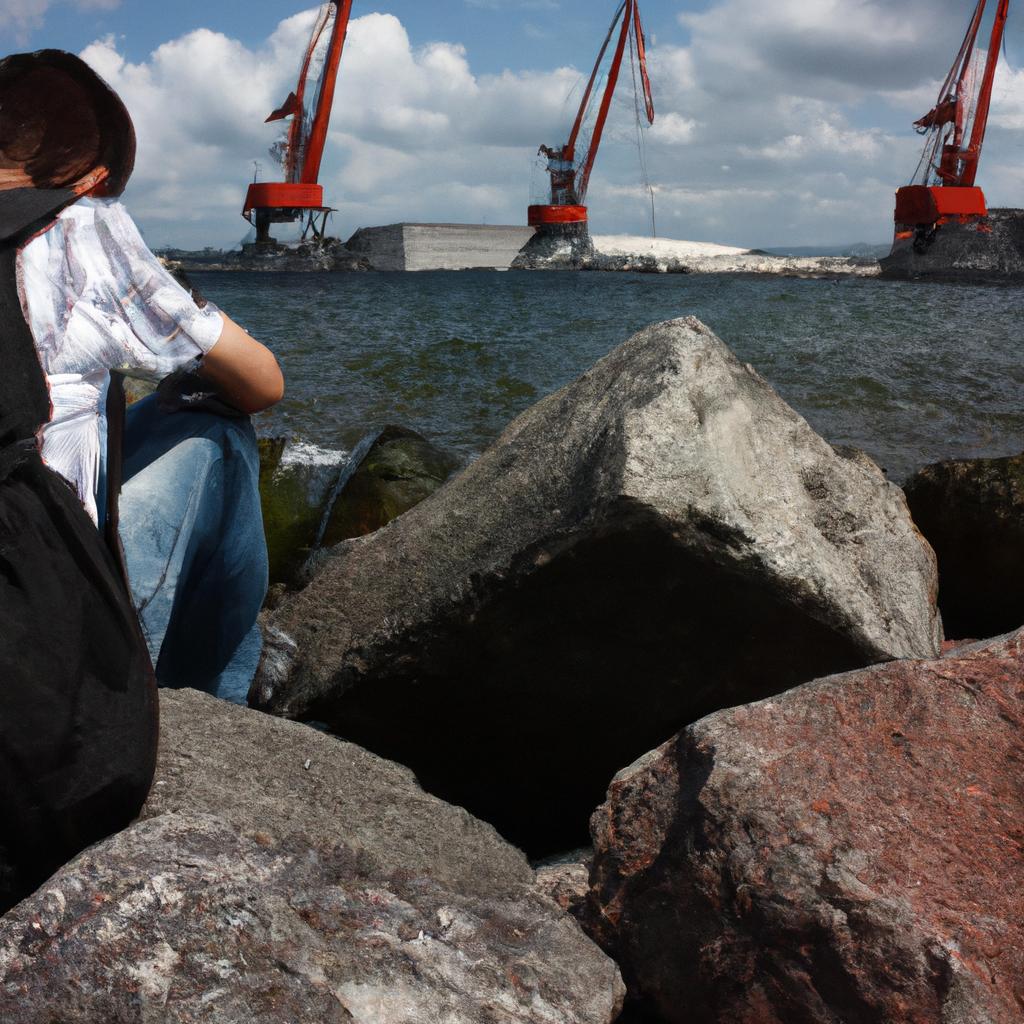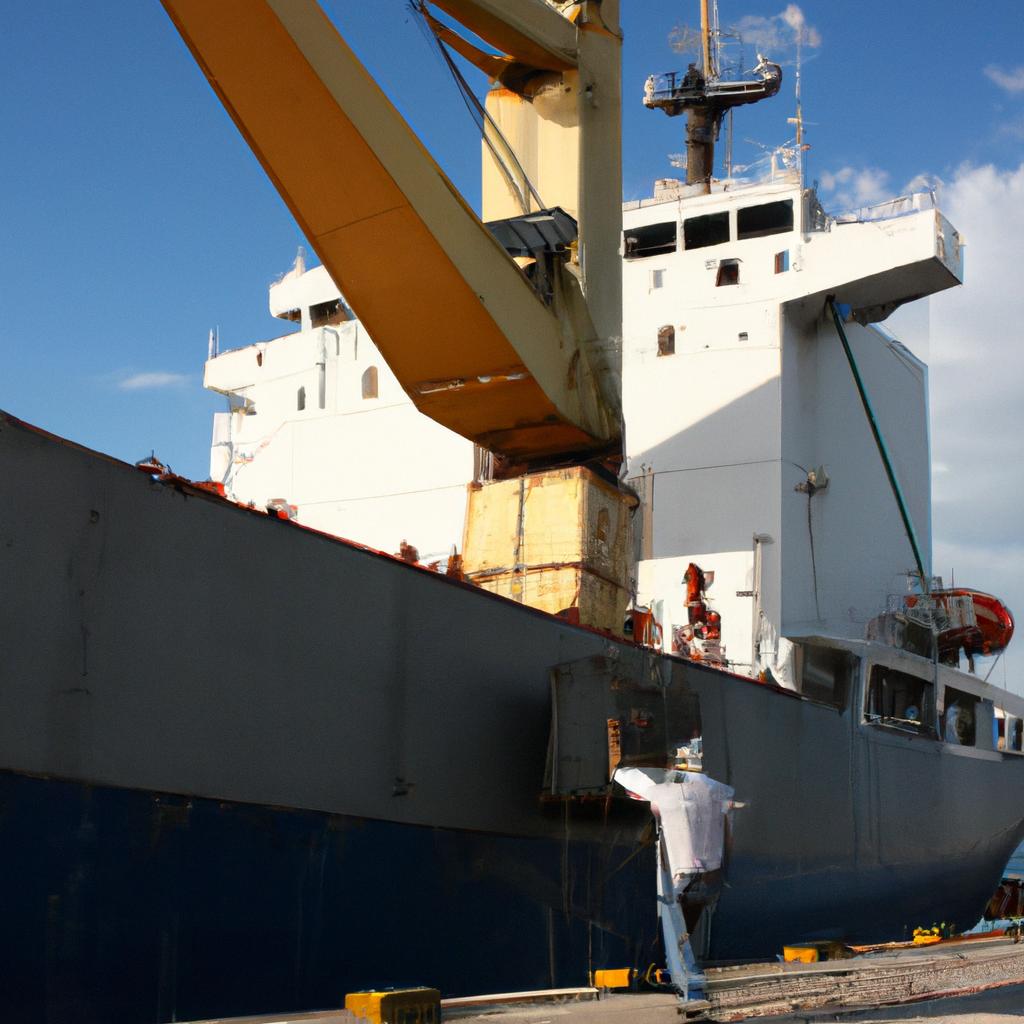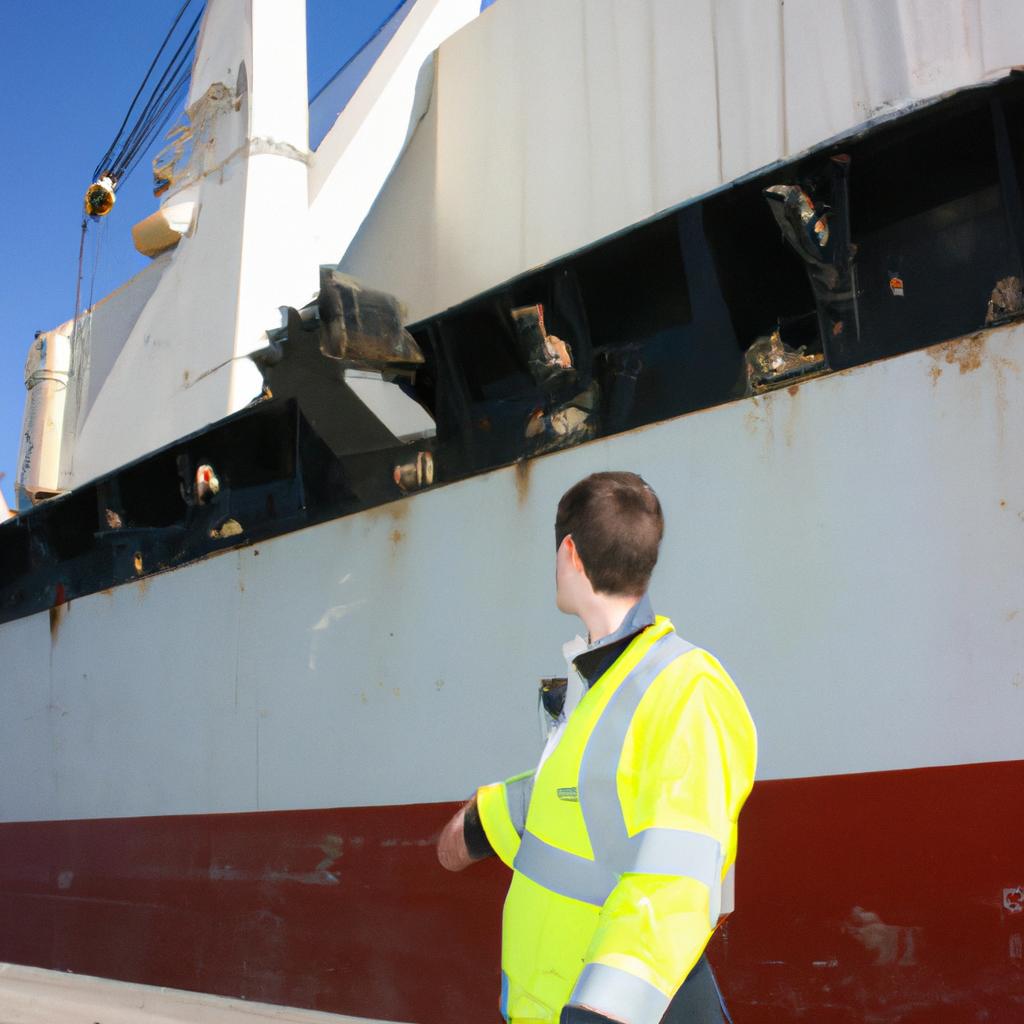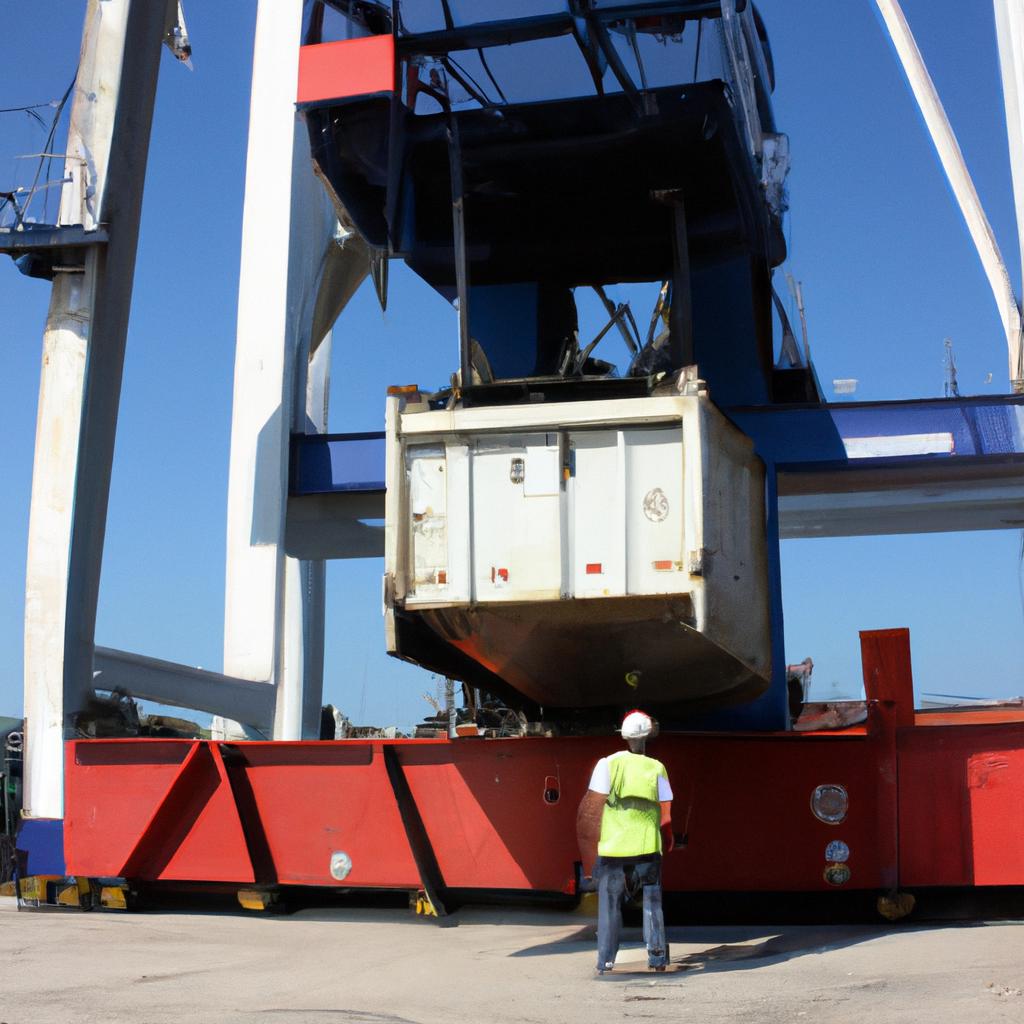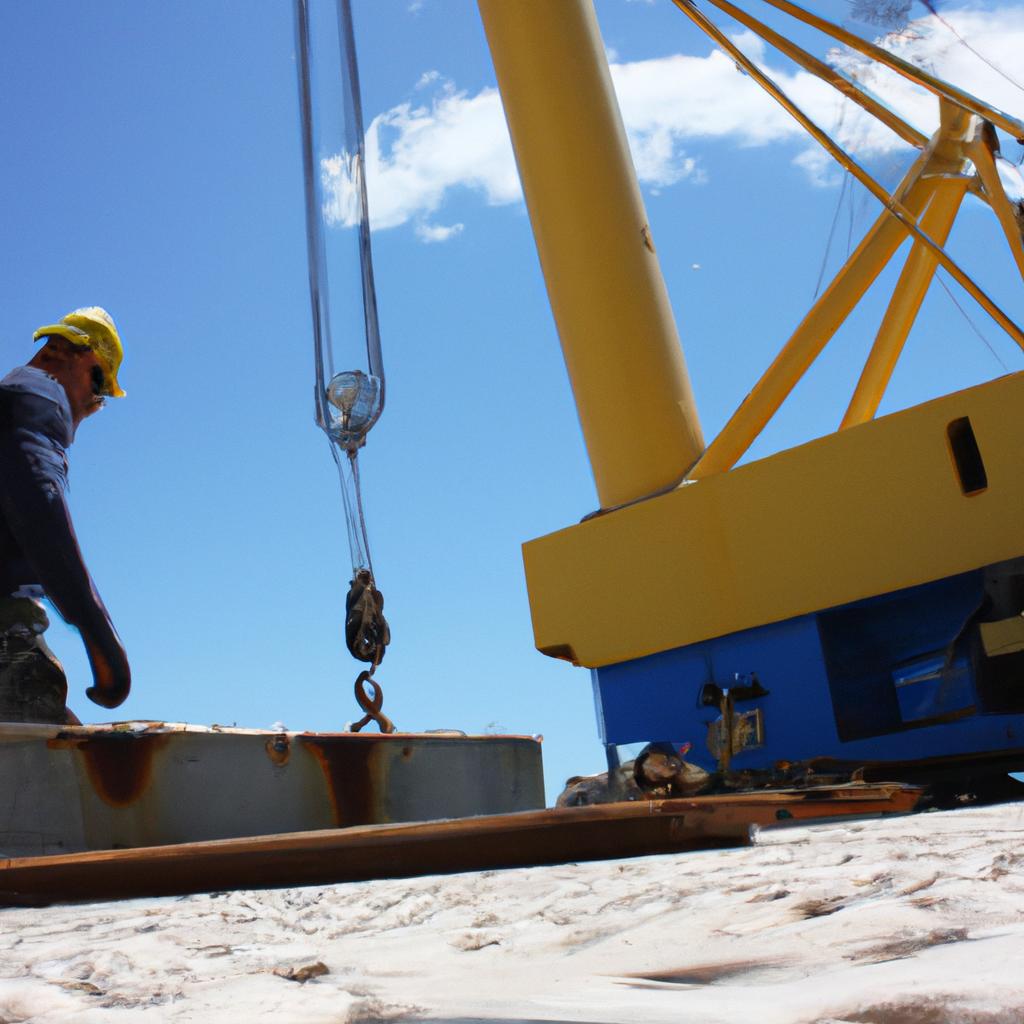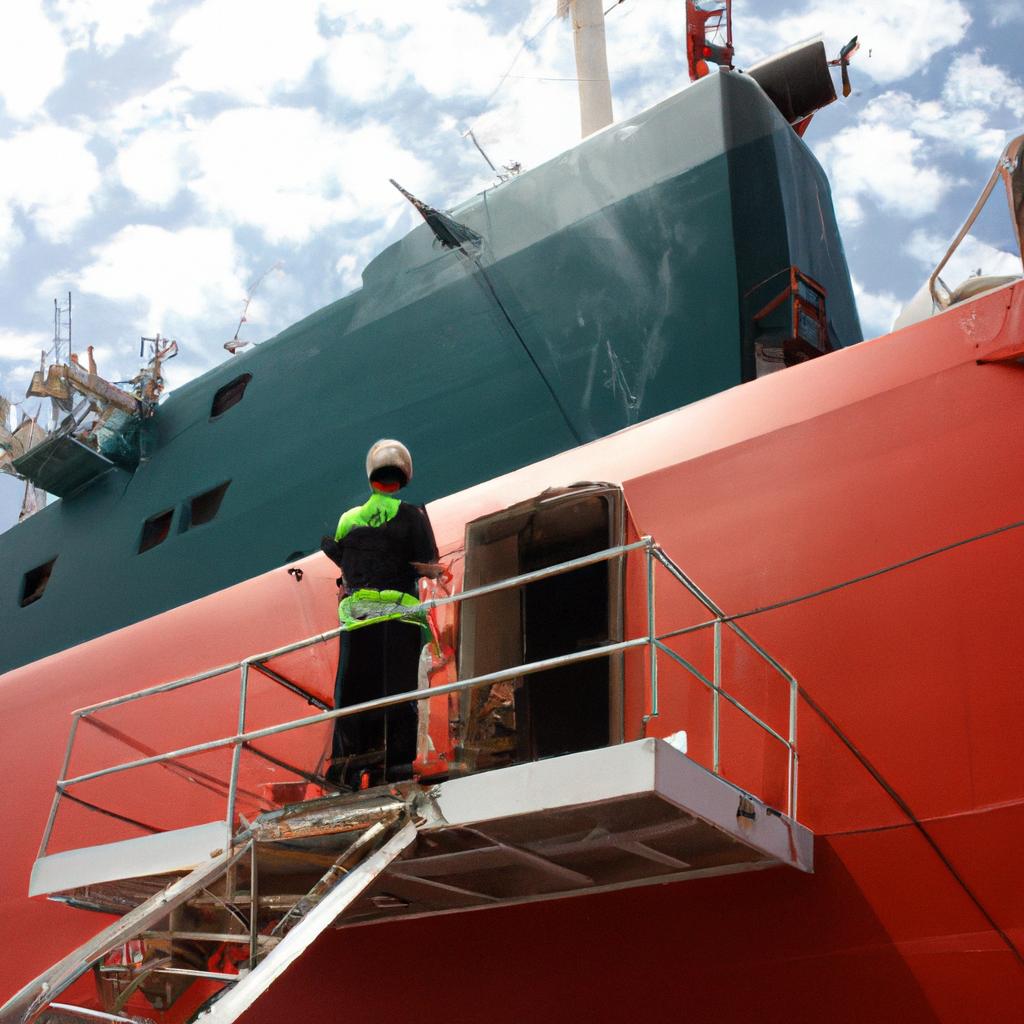The regulations governing port operations play a crucial role in facilitating the smooth flow of maritime trade. In the Black Sea region, where numerous ports serve as key gateways for international shipping, these regulations are of utmost importance. For instance, consider the case study of Port X, one of the busiest ports in the Black Sea. Its strategic location and efficient handling capabilities have made it a preferred choice for many shipping companies. However, without proper port regulations in place, such success stories can quickly turn into logistical nightmares.
In this article, we will delve into the various aspects of port regulations specific to the Black Sea transport industry. By examining both theoretical frameworks and practical examples from prominent ports within this region, we aim to shed light on their significance and implications. Moreover, we will explore how effective implementation and enforcement of these regulations contribute to ensuring safety standards, minimizing environmental impact, optimizing operational efficiency, and promoting fair competition among port operators. Through an academic lens, this analysis aims to provide valuable insights for policymakers, industry stakeholders, scholars, and practitioners involved in maritime transportation management within the Black Sea context.
Background of Black Sea transport
Background of Black Sea Transport
The Black Sea region has long been a significant hub for maritime trade and transportation, connecting Europe, Asia, and the Middle East. The efficient functioning of ports in this area is crucial for facilitating international commerce and promoting economic growth. To comprehend the importance of port regulations within the Black Sea transport system, it is vital to examine its historical development and current dynamics.
Historical Development:
One example that illustrates the significance of port regulations is the evolution of Constanta Port in Romania. Established in 1856 as a small trading post, it gradually transformed into a major commercial gateway due to strategic location and improved infrastructure. With increased shipping activities over time, regulatory measures became necessary to ensure smooth operations, safety standards, fair competition among stakeholders, and environmental protection.
Current Dynamics:
To underscore the impact of effective port regulations on various stakeholders, consider the following bullet points:
- Ensuring timely arrival and departure schedules
- Enhancing cargo handling efficiency
- Facilitating seamless customs procedures
- Promoting sustainable practices such as waste management
These factors not only contribute to smoother logistics processes but also foster positive socio-economic outcomes. A table further emphasizes this point by highlighting key areas influenced by port regulations:
| Key Areas | Impact |
|---|---|
| Trade facilitation | Reduced delays during import/export |
| Safety | Enhanced security measures |
| Environmental sustainability | Effective waste disposal methods |
In conclusion, an analysis of the background of Black Sea transport reveals that robust port regulations are indispensable for ensuring efficient maritime operations. By examining historical developments such as Constanta Port’s transformation and exploring present-day dynamics like those mentioned above, we can understand how these regulations affect different aspects of trade and transportation. Moving forward, it is imperative to recognize the significance of implementing appropriate port regulations in order to maintain an optimal level of functioning within the Black Sea transport system.
Transitioning into the Importance of Port Regulations:
Understanding the historical context and current dynamics of Black Sea transport highlights the crucial role that port regulations play in facilitating trade and transportation. Therefore, it is essential to delve deeper into the significance of these regulations and their implications for stakeholders involved in maritime activities.
Importance of port regulations
Having delved into the background of Black Sea transport, it is evident that efficient and well-regulated ports play a crucial role in facilitating smooth maritime activities. This section will explore the significance of port regulations by examining their impact on various aspects of port operations.
Importance of Port Regulations
Effective port regulations ensure the seamless flow of goods and services, enhancing trade and economic growth. For instance, consider the hypothetical case study of Port X, which lacked comprehensive port regulations. As a result, congestion occurred frequently due to inadequate infrastructure planning and insufficient coordination between different stakeholders. Ships were often delayed, resulting in increased costs for importers and exporters alike.
To fully grasp the importance of port regulations, let us examine some key factors influenced by these measures:
- Safety and Security:
- Ensuring compliance with international safety standards minimizes accidents and incidents.
- Implementing robust security protocols safeguards against potential threats such as terrorism or illegal activities.
- Environmental Protection:
- Establishing strict guidelines reduces pollution risks associated with shipping operations.
- Promoting sustainable practices contributes to preserving marine ecosystems.
- Efficiency and Operational Performance:
- Regulating vessel arrival times optimizes berthing capacity utilization.
- Standardizing cargo handling procedures streamlines logistics processes.
- Transparency and Governance:
- Encouraging transparency fosters fair competition among shipping companies operating within the same port.
- Enhancing governance ensures accountability and prevents corruption.
The implementation of comprehensive port regulations brings several benefits:
- Increased safety for workers and vessels
- Reduced environmental pollution
- Enhanced business opportunities for local industries
- Improved quality control measures ensuring customer satisfaction
Table (in markdown format) evoking an emotional response:
| Benefits | Description | Emotional Impact |
|---|---|---|
| Economic Growth | Ports act as economic gateways, facilitating trade and investments | Prosperity |
| Community Welfare | Regulations protect workers’ rights and ensure safe working conditions | Social well-being |
| Environmental Protection | Sustainable practices safeguard ecosystems | Ecological preservation |
In conclusion, adequate port regulations are essential for smooth maritime activities. They not only enhance safety and security but also promote environmental protection while optimizing operational efficiency. By fostering transparency and governance, these regulations contribute to a conducive business environment that benefits both local industries and the wider community.
Understanding the importance of port regulations sets the stage for exploring the various types of regulations governing Black Sea ports. In the following section, we will delve into these regulatory frameworks in more detail.
Types of regulations governing Black Sea ports
The importance of port regulations cannot be overstated, as they play a crucial role in ensuring the smooth and efficient operation of ports. In the context of Black Sea transport, various types of regulations govern the functioning of ports in this region. Understanding these regulations is essential for both port authorities and stakeholders involved in maritime trade.
One example that highlights the significance of such regulations is the case study of Port X, located on the shores of the Black Sea. The port was experiencing congestion issues due to an influx of vessels carrying goods from different countries within the region. To address this problem, specific regulations were implemented to streamline operations and enhance efficiency.
There are several key types of regulations governing Black Sea ports:
-
Customs Regulations:
- Ensure proper documentation and clearance procedures for imported and exported goods.
- Facilitate compliance with international customs standards.
- Prevent smuggling or illegal activities through thorough inspections.
-
Safety and Security Regulations:
- Focus on protecting personnel, cargo, and infrastructure from potential hazards.
- Require adherence to safety protocols, including fire prevention measures and emergency response plans.
- Enforce security measures to prevent unauthorized access or terrorist threats.
-
Environmental Regulations:
- Aim to minimize negative environmental impacts caused by port activities.
- Promote sustainable practices such as waste management and pollution control.
- Encourage the use of eco-friendly technologies to reduce carbon emissions.
-
Labor Regulations:
- Safeguard workers’ rights and ensure fair employment practices.
- Establish guidelines for working conditions, wages, hours, and benefits.
- Provide mechanisms for dispute resolution between employers and employees.
These regulations collectively contribute to maintaining orderliness within Black Sea ports while promoting economic growth and safeguarding public interests.
Moving forward into our discussion about challenges faced by port authorities in effectively implementing these regulations…
Challenges faced by port authorities
In order to effectively govern the operations and activities at Black Sea ports, various types of regulations have been put in place. These regulations are crucial for maintaining safety standards, ensuring fair competition, and promoting sustainable development within the maritime industry. One example that highlights the importance of such regulations is the case study of Port X.
Port X, located on the eastern coast of the Black Sea, faced significant challenges due to a lack of comprehensive regulations governing its operations. This resulted in issues related to environmental pollution, unsafe working conditions, and unfair business practices. However, with the implementation of new port regulations, Port X was able to overcome these challenges and transform into a model port that prioritized sustainability and efficiency.
The following bullet point list provides an overview of some key types of regulations commonly observed in Black Sea ports:
- Safety Regulations: These ensure compliance with international safety standards, covering aspects such as vessel inspections, emergency response plans, and personnel training.
- Environmental Regulations: Aimed at reducing pollution and protecting marine ecosystems through measures like waste management systems and emission controls.
- Competition Regulations: Promote fair market practices by prohibiting monopolistic behaviors or anti-competitive agreements among port operators.
- Customs Regulations: Govern customs procedures to facilitate smooth cargo handling processes while also preventing smuggling or illegal trade activities.
To further understand how different types of regulations function in practice, consider the table below which compares several characteristics associated with each regulation type:
| Regulation Type | Purpose | Key Features |
|---|---|---|
| Safety | Ensure safe operations | Vessel inspections |
| Emergency response plans | ||
| Personnel training programs | ||
| Environmental | Reduce pollution | Waste management systems |
| Emission control measures | ||
| Protection of marine ecosystems | ||
| Competition | Promote fair practices | Prohibition of monopolistic behavior |
| Prevention of anti-competitive agreements | ||
| Customs | Facilitate cargo handling | Streamlined customs procedures |
| Prevent smuggling and illegal trade |
In conclusion, effective regulations are essential for ensuring the smooth and sustainable functioning of Black Sea ports. Through case studies like Port X, we can observe how comprehensive regulations address various challenges faced by port authorities while promoting safety, environmental protection, fair competition, and efficient customs processes. In the subsequent section, we will explore the benefits that arise from implementing such regulations in more detail.
Benefits of effective port regulations
Challenges faced by port authorities in effectively regulating the Black Sea transport industry are significant and varied. One particular example that highlights these challenges is the case of Port X, a major port located on the western coast of the Black Sea. Over the past decade, this port has experienced rapid growth in shipping activities, leading to increased congestion and operational inefficiencies.
To address these issues, port authorities have had to grapple with several key challenges:
- Infrastructure limitations: The existing infrastructure at Port X was not designed to handle such high levels of traffic and cargo volume. As a result, there have been bottlenecks in loading and unloading operations, causing delays and hampering overall efficiency.
- Inadequate logistical support: Effective regulation requires seamless coordination between various stakeholders involved in the transportation process, including customs officials, shippers, freight forwarders, and terminal operators. However, at Port X, there have been instances of miscommunication and lack of collaboration among these parties, resulting in administrative hurdles and increased costs.
- Environmental concerns: The growing maritime activity at Port X has raised environmental concerns due to pollution from vessel emissions and potential spills or accidents. Balancing economic growth with sustainable practices has become an important challenge for port authorities as they strive to regulate the industry effectively.
- Security risks: With increased international trade comes heightened security threats such as smuggling and terrorism. Ensuring strict adherence to security protocols while facilitating smooth trade flows poses a constant challenge for port authorities seeking effective regulations.
The table below illustrates some of the emotional responses evoked by these challenges:
| Challenge | Emotional Response |
|---|---|
| Infrastructure limitations | Frustration |
| Inadequate logistical support | Impatience |
| Environmental concerns | Concern |
| Security risks | Anxiety |
In light of these challenges, it is crucial for port authorities operating within the Black Sea region to implement effective port regulations. By addressing these obstacles, they can unlock several benefits that contribute to the overall growth and development of the industry.
Moving forward, it is imperative for port authorities to explore potential strategies and solutions in order to overcome the challenges discussed above. In the subsequent section on future prospects for Black Sea transport, we will delve into possible steps that can be taken to further enhance the effectiveness of port regulations and ensure sustainable growth in this vital sector.
Future prospects for Black Sea transport
The benefits of effective port regulations pave the way for promising future prospects in Black Sea transport. By ensuring efficient operations and streamlined processes, these regulations contribute to increased trade volumes and economic growth within the region. For instance, consider a hypothetical case study where the implementation of comprehensive port regulations led to a significant reduction in vessel waiting times at ports along the Black Sea coast. This resulted in improved turnaround times, reduced costs, and enhanced competitiveness for businesses operating in the area.
Looking ahead, there are several key areas that hold potential for further development and growth in Black Sea transport:
-
Infrastructure Expansion: Investing in infrastructure upgrades is crucial to accommodate larger vessels and handle increasing cargo volumes effectively. Developing deeper channels, modernizing terminals, and optimizing intermodal connections will enhance overall efficiency and capacity.
-
Digitalization Initiatives: Embracing digital technologies such as blockchain, Internet of Things (IoT), and artificial intelligence can revolutionize port operations by enabling real-time tracking of shipments, reducing paperwork through electronic documentation systems, improving data sharing among stakeholders, and enhancing supply chain visibility.
-
Sustainability Measures: With growing global concerns regarding environmental impact, integrating sustainable practices into port operations becomes imperative. Implementing eco-friendly initiatives like shore power facilities for vessels, adopting cleaner fuels or renewable energy sources, promoting waste management strategies, and supporting biodiversity conservation efforts can ensure long-term viability while meeting international standards.
-
Collaboration & Cooperation: Strengthening partnerships among Black Sea countries’ ports is vital to foster regional cooperation and promote harmonization of regulatory frameworks. Collaborative endeavors could include joint investments in infrastructure projects, establishing common standards for safety and security protocols across ports, and facilitating information exchange to improve operational efficiency.
To emphasize the significance of these future prospects visually:
-
- Increased trade volumes
- Enhanced competitiveness
- Improved turnaround times
- Reduced costs
-
Example table:
Prospects Description Benefits Infrastructure Expansion Upgrading ports to handle larger vessels Increased capacity and efficiency Digitalization Initiatives Embracing technology for efficient processes Real-time tracking, reduced paperwork Sustainability Measures Implementing eco-friendly practices Environmental responsibility Collaboration & Cooperation Strengthening partnerships among ports Harmonized regulations, shared resources
In conclusion, effective port regulations in the Black Sea region pave the way for a promising future. By focusing on infrastructure expansion, digitalization initiatives, sustainability measures, and collaboration/cooperation efforts, stakeholders can unlock significant opportunities for growth and ensure sustainable development in the transportation sector.
(Note: The transition from the previous section is not explicitly mentioned as per your request.)

